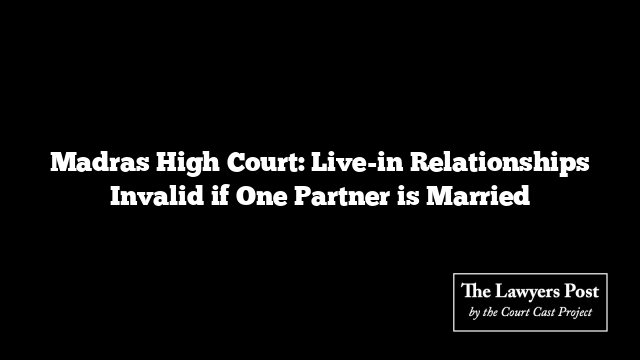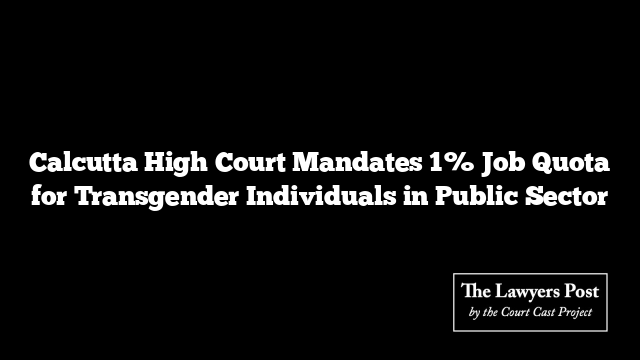In a landmark ruling, the Madras High Court declared that a live-in relationship loses its legitimacy if one partner is already married, denying any claims to succession or inheritance of the property by the alleged live-in partner.
On June 7, Justice RMT Teekaa Raman delivered a judgment asserting that adults cohabiting, while one is still married, cannot legally claim the status or benefits of a live-in relationship. The court strongly criticized the mislabeling of extramarital affairs as live-in relationships, emphasizing that such relationships should not be considered as legitimate.
“The circumstances differ when both individuals are unmarried and choose to live together as adults. Recently, there has been a trend where extramarital affairs are being misrepresented as live-in relationships, which is incorrect and should be condemned,” the court stated.
This judgment came during the hearing of an appeal filed by P Jayachandran, who contested a trial court’s decision regarding property rights after the death of his partner, Margarette Arulmozhi. Despite living together, Jayachandran was still legally married to another woman, with whom he had five children, although they had no active relationship and were not divorced.
Jayachandran and Arulmozhi had acquired a house, which was registered in Arulmozhi’s name through a settlement deed. Following Arulmozhi’s death in 2013, Jayachandran attempted to annul the settlement deed to claim the property solely. However, Arulmozhi’s father contested this, and the trial court ruled in his favor.
In his appeal to the High Court, Jayachandran argued that his cohabitation with Arulmozhi should entitle him to her property. Justice Teekaa Raman, however, dismissed this argument, highlighting that without a legal divorce from his first wife, Jayachandran’s relationship with Arulmozhi could not be legally recognized as akin to marriage.
“The appellant knowingly entered into a live-in relationship while still married, which disqualifies their cohabitation from being recognized as a valid marriage. The law presumes that a couple living together as husband and wife are in a valid marriage, which does not apply in this scenario. Therefore, their relationship cannot be viewed as one of marital nature,” the High Court ruled.
The court upheld the trial court’s decision, ruling that Arulmozhi’s father’s legal heirs were entitled to the property following his death.
Advocate C Shankar represented Jayachandran, while Advocate G Jeremiah appeared for the legal heirs of Arulmozhi’s father.





